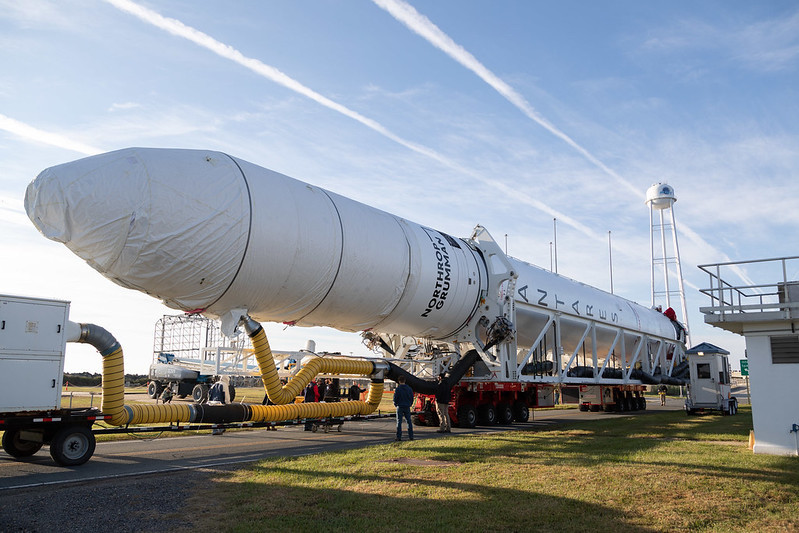Channels
Special Offers & Promotions
Multiple Partners to Validate Stem Cell Production on Space Station

Every three minutes, one person in the U.S. is diagnosed with blood cancer. Treatments typically include chemotherapy followed by stem cell transplants to restore healthy blood cells. To make stem cells for such transplants more readily available, scientists in the field of cellular therapeutics are turning to the International Space Station (ISS) National Laboratory.
To that end, BioServe Space Technologies at the University of Colorado Boulder and Sierra Space have developed a pathfinder spaceflight investigation designed to expand hematopoietic stem cells (stem cells that develop into blood cells) derived from umbilical cord blood in microgravity. The project is being done in partnership with researchers from the Mayo Clinic (Jacksonville, Florida) and ClinImmune on the University of Colorado Medical Campus.
When grown on Earth, hematopoietic stem cells lose their multipotency (ability to become many types of blood cell types), which is not optimal for patient recovery. Previous research conducted by the Mayo Clinic indicates that mesenchymal stem cells (stem cells that develop into a variety of cell types, including bone, cartilage, and fat cells) produced in space could have greater potency than their terrestrial counterparts. Building on this research, the current flight study aims to expand a population of hematopoietic stem cells that retain their multipotent ability, making the cells better able to restore blood and immune function in patients treated for cancer. The experiment will fly to the space station on Northrop Grumman’s 19th Commercial Resupply Services mission.
Chemotherapy is a common type of cancer treatment that targets cancer cells but can also destroy healthy cells, which could lead to life-threatening complications. To help replenish healthy blood and immune cells, doctors can transplant hematopoietic stem cells from a healthy donor’s bone marrow or blood into a matched recipient.
“When patients receive bone marrow transplants or other stem cell therapies, the transplanted cells are from other individuals,” said Louis Stodieck, principal investigator for the project with BioServe. “And when you take cells or tissues from one human and put it in another human, you may get an undesirable immune system response. This can take the form of transplant rejection or graft versus host disease in a patient who had a hematopoietic stem cell transplant.”
To reduce the risk of rejection and disease, clinicians use hematopoietic stem cells obtained from donated umbilical cord blood. This blood, which is collected immediately after the umbilical cord is cut when a baby is born, contains hematopoietic stem cells at an earlier stage of development than those from adult blood or bone marrow. Because these cells are closer in nature to embryonic stem cells, there is a lower risk of complications. However, stem cell transplants require large numbers of cells to be effective, and it is challenging to obtain enough umbilical cord blood stem cells for effective treatment.
Microgravity could help solve this problem by providing an improved environment for stem cell expansion. If there were a way to mass-produce multipotent hematopoietic stem cells in space, more patients could receive cord blood stem cell transplants, said Sierra Space CEO Tom Vice.
“Approximately every nine minutes, a family loses a loved one to leukemia, lymphoma, or myeloma. If we can mass produce hematopoietic stem cells by using the unique microgravity environment of space, I think about the transformational impact we will have on patients and their families,” Vice said. “This experiment is a precursor to what Sierra Space one day envisages—orbiting microgravity factories that enable the next breakthroughs in human health care that will have a profound impact on the quality of life and longevity of millions of people here on Earth.”
BioServe and the research team will send stem cell samples from multiple umbilical cord blood donors to look for beneficial differences during the cell growth experiment. The stem cell samples will be frozen at different time points while in orbit and then sent back to Earth for analysis.
Sierra Space is developing low Earth orbit (LEO) infrastructure capabilities such as the Dream Chaser space plane and the LIFE (Large Integrated Flexible Environment) Habitat that will support commercial in-space cellular therapeutic manufacturing. This pathfinder study is part of a larger project led by BioServe to develop a stem cell expansion bioreactor for use in LEO for eventual cellular therapeutic manufacturing in space. Future spaceflight investigations are being planned with the project partners to demonstrate the potential for in-space production.
The mission is targeted for launch from Wallops Flight Facility no earlier than August 1 at 8:31 p.m. EDT. This mission will include more than 20 ISS National Lab-sponsored payloads. To learn more about all ISS National Lab-sponsored research on this mission, please visit our launch page.
About the International Space Station (ISS) National Laboratory
The International Space Station (ISS) is a one-of-a-kind laboratory that enables research and technology development not possible on Earth. As a public service enterprise, the ISS National Lab allows researchers to leverage this multiuser facility to improve life on Earth, mature space-based business models, advance science literacy in the future workforce, and expand a sustainable and scalable market in low Earth orbit. Through this orbiting national laboratory, research resources on the space station are available to support non-NASA science, technology and education initiatives from U.S. government agencies, academic institutions, and the private sector. The Center for the Advancement of Science in Space (CASIS), Inc. manages the ISS National Lab, under Cooperative Agreement with NASA, facilitating access to its permanent microgravity research environment, a powerful vantage point in low Earth orbit, and the extreme and varied conditions of space.
Media Partners


